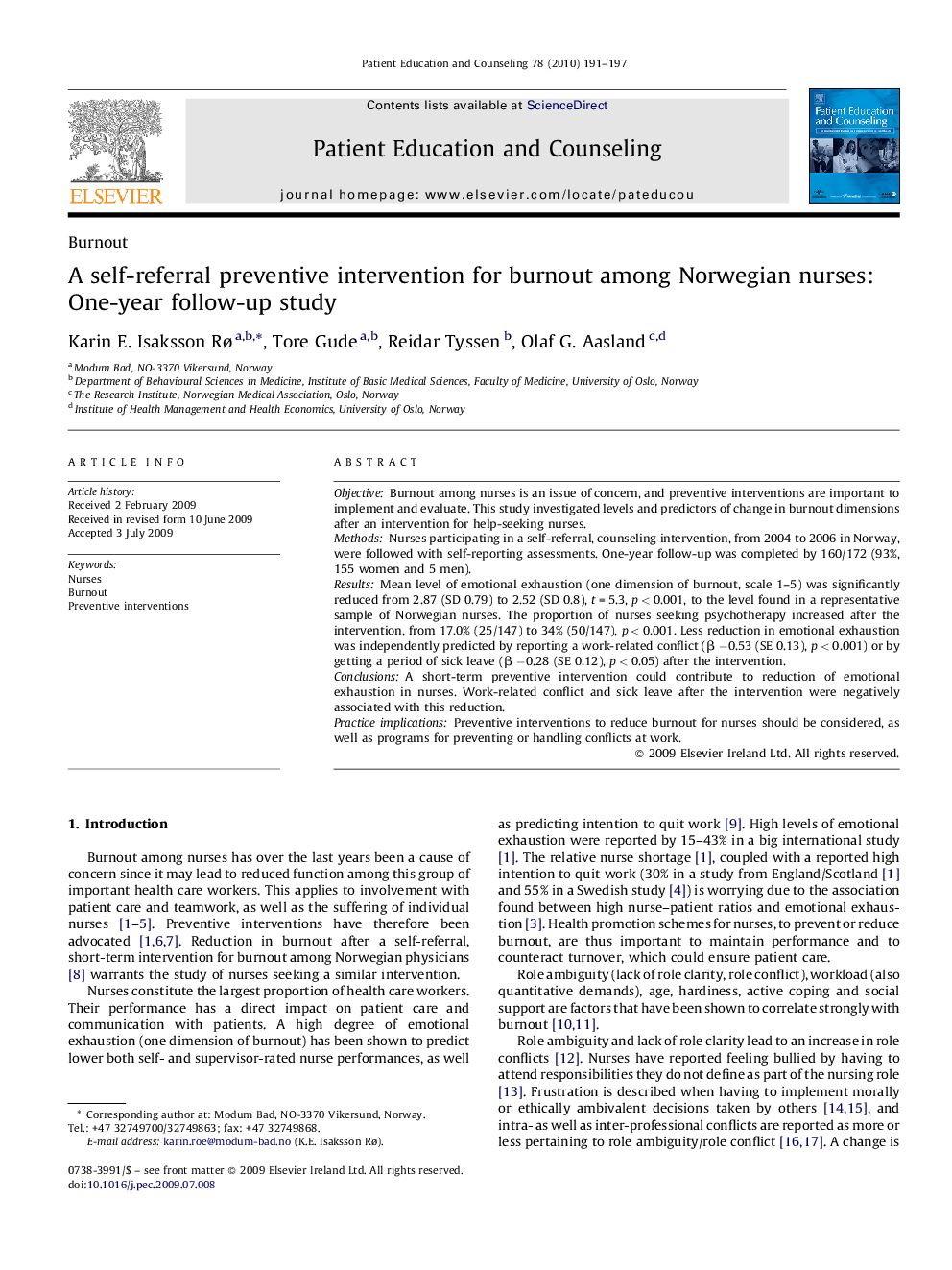| Article ID | Journal | Published Year | Pages | File Type |
|---|---|---|---|---|
| 3815718 | Patient Education and Counseling | 2010 | 7 Pages |
ObjectiveBurnout among nurses is an issue of concern, and preventive interventions are important to implement and evaluate. This study investigated levels and predictors of change in burnout dimensions after an intervention for help-seeking nurses.MethodsNurses participating in a self-referral, counseling intervention, from 2004 to 2006 in Norway, were followed with self-reporting assessments. One-year follow-up was completed by 160/172 (93%, 155 women and 5 men).ResultsMean level of emotional exhaustion (one dimension of burnout, scale 1–5) was significantly reduced from 2.87 (SD 0.79) to 2.52 (SD 0.8), t = 5.3, p < 0.001, to the level found in a representative sample of Norwegian nurses. The proportion of nurses seeking psychotherapy increased after the intervention, from 17.0% (25/147) to 34% (50/147), p < 0.001. Less reduction in emotional exhaustion was independently predicted by reporting a work-related conflict (β −0.53 (SE 0.13), p < 0.001) or by getting a period of sick leave (β −0.28 (SE 0.12), p < 0.05) after the intervention.ConclusionsA short-term preventive intervention could contribute to reduction of emotional exhaustion in nurses. Work-related conflict and sick leave after the intervention were negatively associated with this reduction.Practice implicationsPreventive interventions to reduce burnout for nurses should be considered, as well as programs for preventing or handling conflicts at work.
